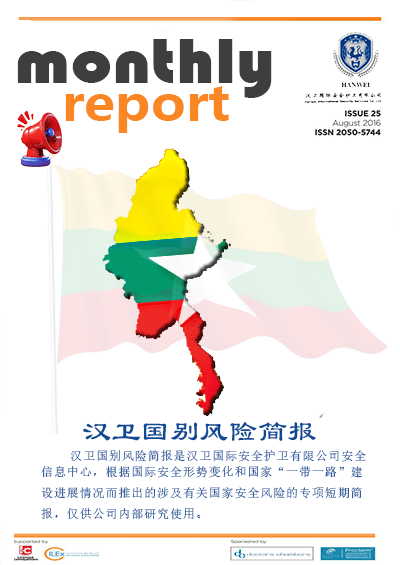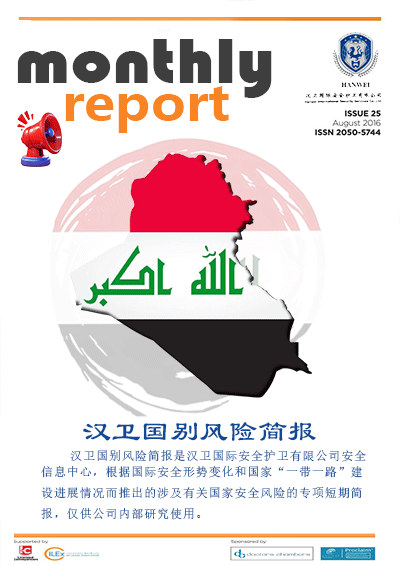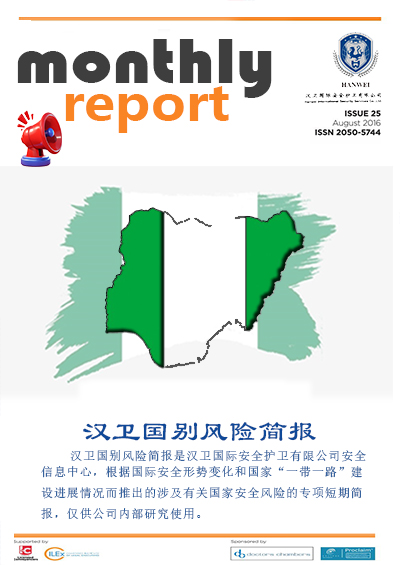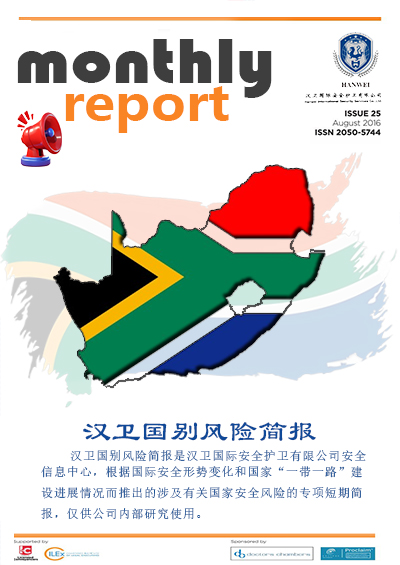Nigeria Social Security Situation Analysis September 2024
Researcher No.007
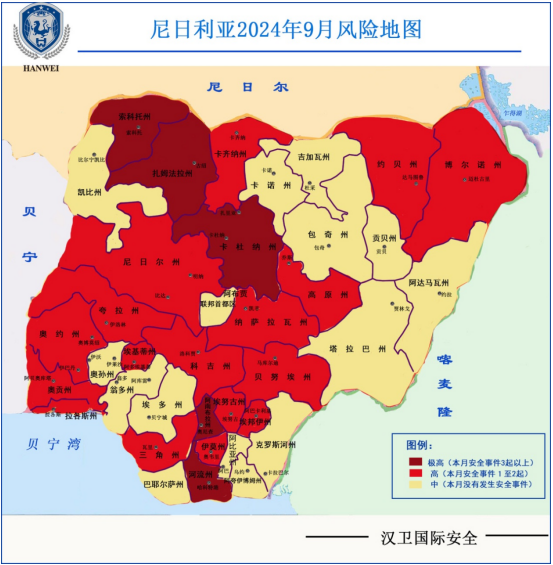
According to monitoring reports from Hanwei International's West Africa security officers and comprehensive media coverage, 51 security incidents were recorded in Nigeria in September 2024. These incidents resulted in 209 civilian deaths, 24 military/police deaths, and 160 kidnappings. The main types of security incidents included armed attacks, kidnappings, protests, and public safety accidents. Compared with the previous month, the number of security incidents increased by 3, deaths decreased by 120, and kidnappings increased by 67. Analysis indicates that Nigeria continues to experience frequent armed attacks and kidnappings this month, while public safety incidents such as epidemics and traffic accidents have caused significant casualties and property damage. The overall security situation remains complex and severe, with extremely high risk levels in the north-central and south-central regions, and high to medium-high risk levels in other areas.
I. Comprehensive Analysis of Security Incidents
The 51 security incidents in September included 25 armed attacks (49%), 15 armed kidnappings (29%), 7 public safety accidents (13%), 2 protests (4%), and 2 military clearance operations (4%). These incidents resulted in 241 deaths and at least 160 kidnappings. Among the fatalities, 209 were civilians, 24 were military/police personnel, and 8 were terrorists killed. No ethnic conflict incidents were recorded this month.
Key characteristics of the overall security situation:
(1) Extremely High Security Risks in North-Central and South-Central RegionsIn September, security incidents were concentrated in the north-central states of Kaduna and Zamfara, as well as the south-central states of Rivers and Anambra. Zamfara State in the north-central region had the highest security risk, with 7 incidents (mainly armed attacks and kidnappings) resulting in 58 deaths and 68 kidnappings. Statistics show Zamfara is Nigeria's most kidnapping-prone state, with 1,320 recorded cases and 1,639 victims from July 2023 to July 2024. Kaduna State reported 6 incidents (12 deaths, 63 kidnappings), while Rivers and Anambra States each had 4 incidents (8 deaths, 12 kidnappings). Additionally, multiple drug trafficking vessels were intercepted at Onne Port in Rivers State, prompting the Nigerian government to declare a state of emergency there on September 6. Customs officials stated Onne Port "appears to be the preferred destination for illegal drug traffickers," announcing stricter container inspections for the next three months.
Figure 1: September Security Incident Distribution Map
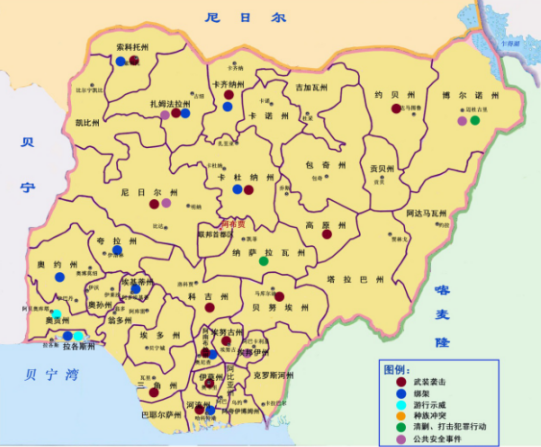
Chart 1: September Major Regional Security Incident Statistics
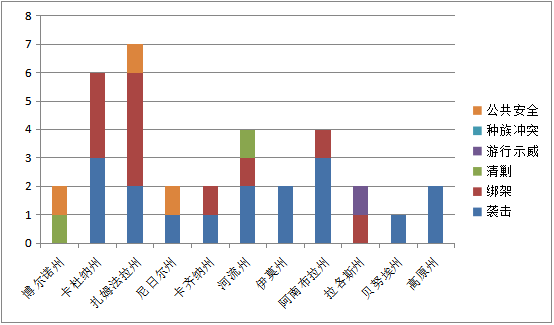
(2) Continued High Frequency of Armed Attacks and Kidnappings. Nigeria recorded 25 armed attacks and 15 kidnappings in September, causing 108 deaths and 160 abductions. Notable incidents: On September 1, ISWAP militants attacked Mafa village in Yobe's Tarmuwa LGA using 50+ motorcycles, killing 34. President Tinubu condemned this "cruel and cowardly" act. On September 2, pirates kidnapped 10 tourists from a cruise ship in Rivers' Bonny-Port Harcourt waters. On September 12, security forces protecting construction workers in Zamfara were ambushed (5 police, 3 soldiers killed), while armed bandits blocked a highway simultaneously, killing 7 security personnel and kidnapping travelers.
Nigeria has one of the world's highest kidnapping rates. SBM Intelligence reported 1,130 kidnappings (7,568 victims, 1,056 deaths) from July 2023-July 2024, with ₦10 billion (US$687 million) in ransom demands. Ransom amounts vary regionally, being highest in Abuja, followed by Lagos and Kaduna. Demands include cash, food, motorcycles, etc. Most victims are women and northern farmers.
(3) Major Casualties from Public Safety Incidents. September saw 1 boat accident and 2 severe crashes killing 114 people. Flooding has worsened Nigeria's food crisis, with FAO reporting 1.3 million hectares flooded (558,000 farmland) across 29 states, affecting 2.5 million people and displacing 200,000. Nearly 31.8 million Nigerians face severe food insecurity. Additionally, monkeypox cases rose from 48 to 67, with all states except Borno reporting cases. While Nigeria has the less severe clade IIb, neighboring Cameroon has clade Ib, prompting enhanced border monitoring.
(4) Ongoing Military Clearance Operations. Nigerian forces continued counterterrorism operations in northeastern/central regions. In early September, the Army Chief reported 1,166 terrorists killed, 1,096 suspects arrested, 721 hostages freed, and 391 weapons/15,000 rounds seized in August. On September 28, troops killed 8 terrorists, rescued 40 hostages, and seized weapons in Nasarawa's Lafia-Keffi road operation.
Chart 2: September Security Incident Type Comparison
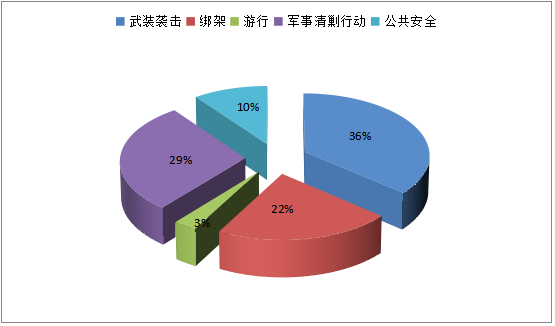
Chart 3: September Fatality Category Statistics
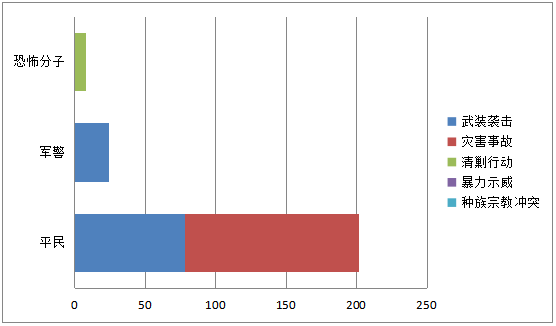
Chart 4: September vs August Major Security Incident Comparison
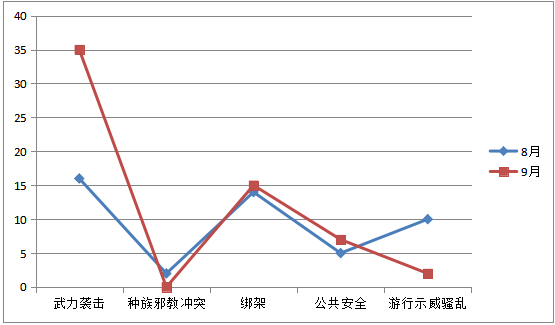
II. Risk Warning and Prevention Recommendations
Chart 5 Nigeria Social Security Risk Early Warning
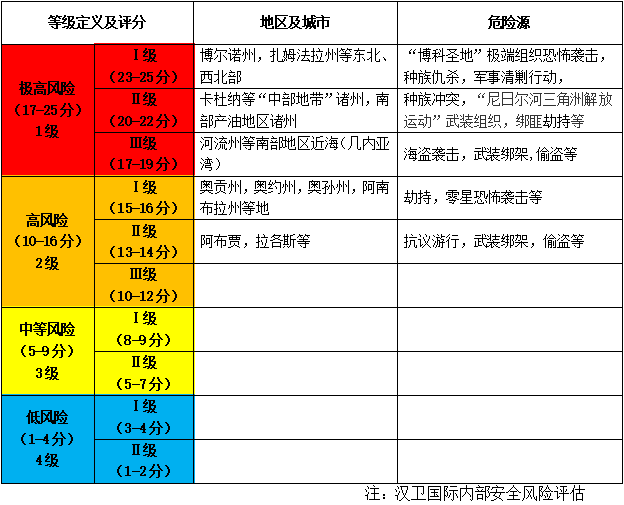
Given Nigeria's complex environment and high-risk assessment, the following security measures are recommended:
1. Implement Full-Time Security for TravelWith limited police presence in rural areas and poor infrastructure, security forces often respond slowly to violence. Chinese enterprises should obtain updated local intelligence, conduct destination-specific risk assessments, and arrange armed escorts.
2. Maintain Flood PreparednessOn September 17, NEMA warned of worsening floods nationwide, particularly in northeast/west regions. High-risk states include Borno, Bauchi, Bayelsa, Enugu, Jigawa, Kano, Kebbi, Kogi, Niger, Sokoto, Yobe, and Zamfara. Borno's Alau Dam collapse displaced 239,000 people in Maiduguri. FAO urges coordinated action to strengthen infrastructure and early warning systems.
3. Comply with Local Laws for OperationsTwo Chinese nationals were arrested for illegal mining in September. On September 10, EFCC arrested five Chinese for allegedly mining titanium ore without authorization in Akwa Ibom. On September 13, two Chinese and one Nigerian faced federal court charges for illegal coal mining in Kogi. Both cases highlight the importance of legal compliance for Chinese businesses in Nigeria.
4. Effectively Mitigate RisksMost attacks occur in northeast/north-central regions, particularly Borno's Maiduguri area, Zamfara, and border zones with Niger. Recent incidents also affect Kaduna and Abuja. Potential targets include government/military facilities, religious sites, and crowded public spaces. Install surveillance systems, perimeter defenses (trenches, walls, alarms), and maintain armed security. Avoid high-risk areas and minimize time near potential targets.

